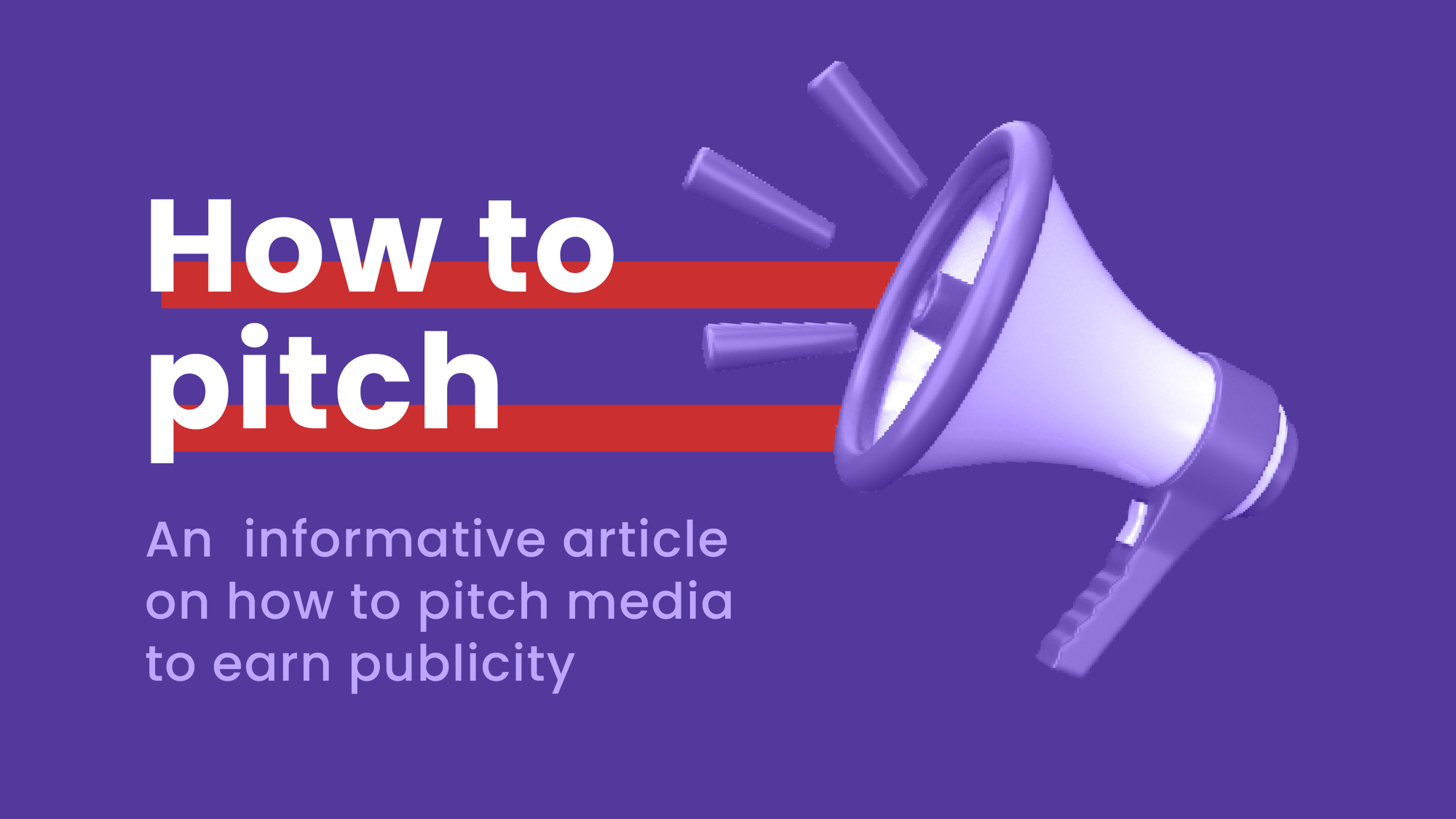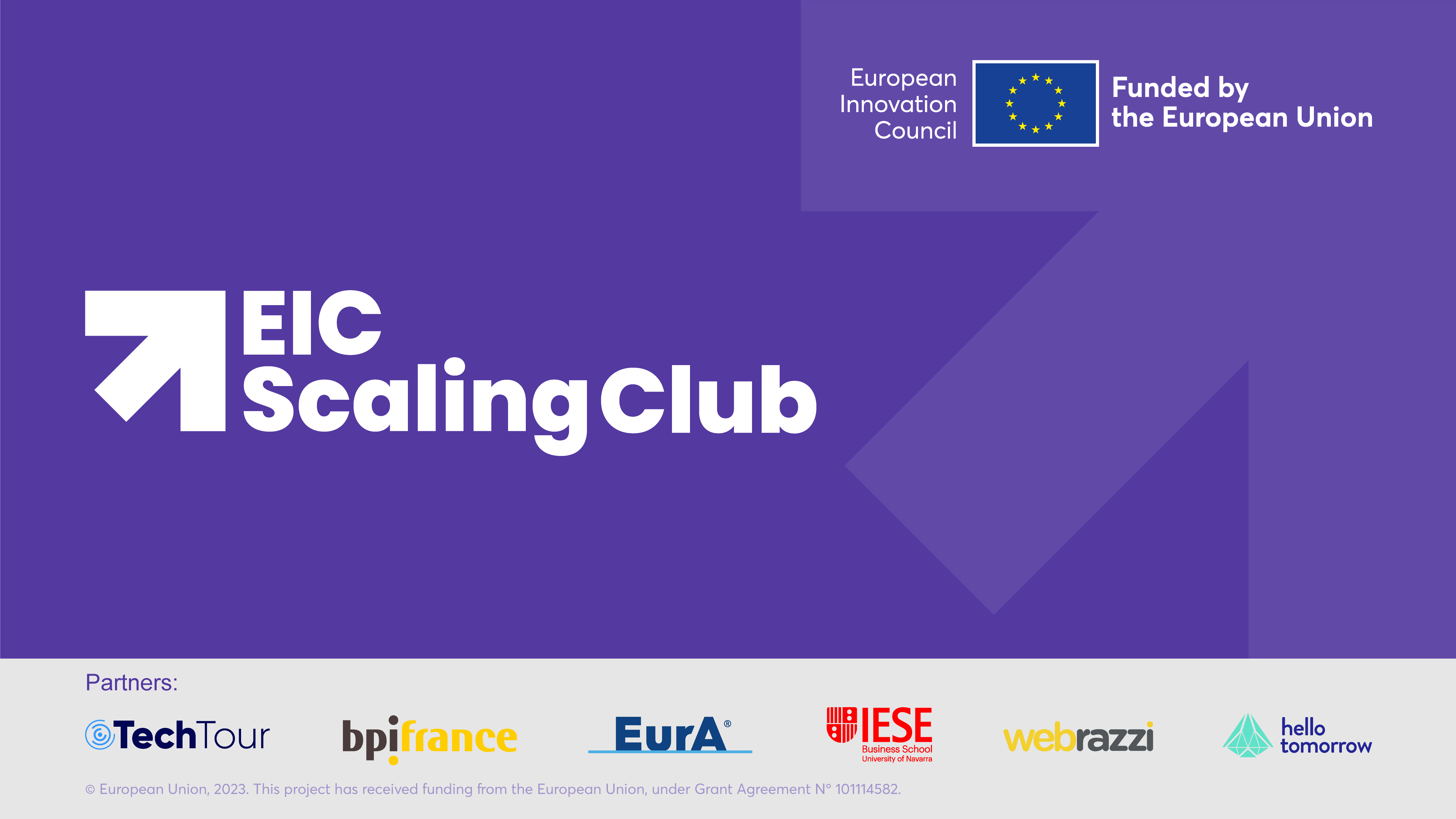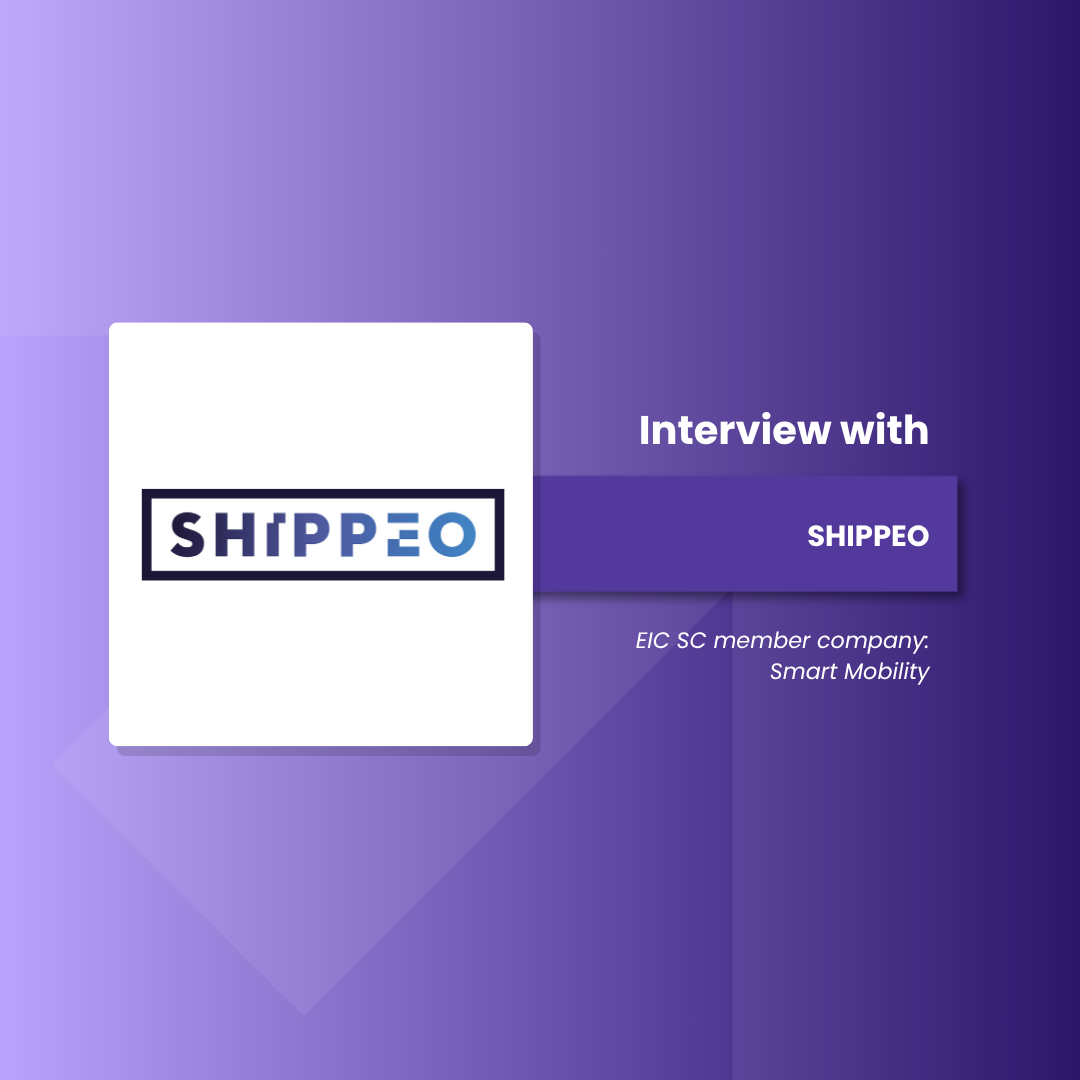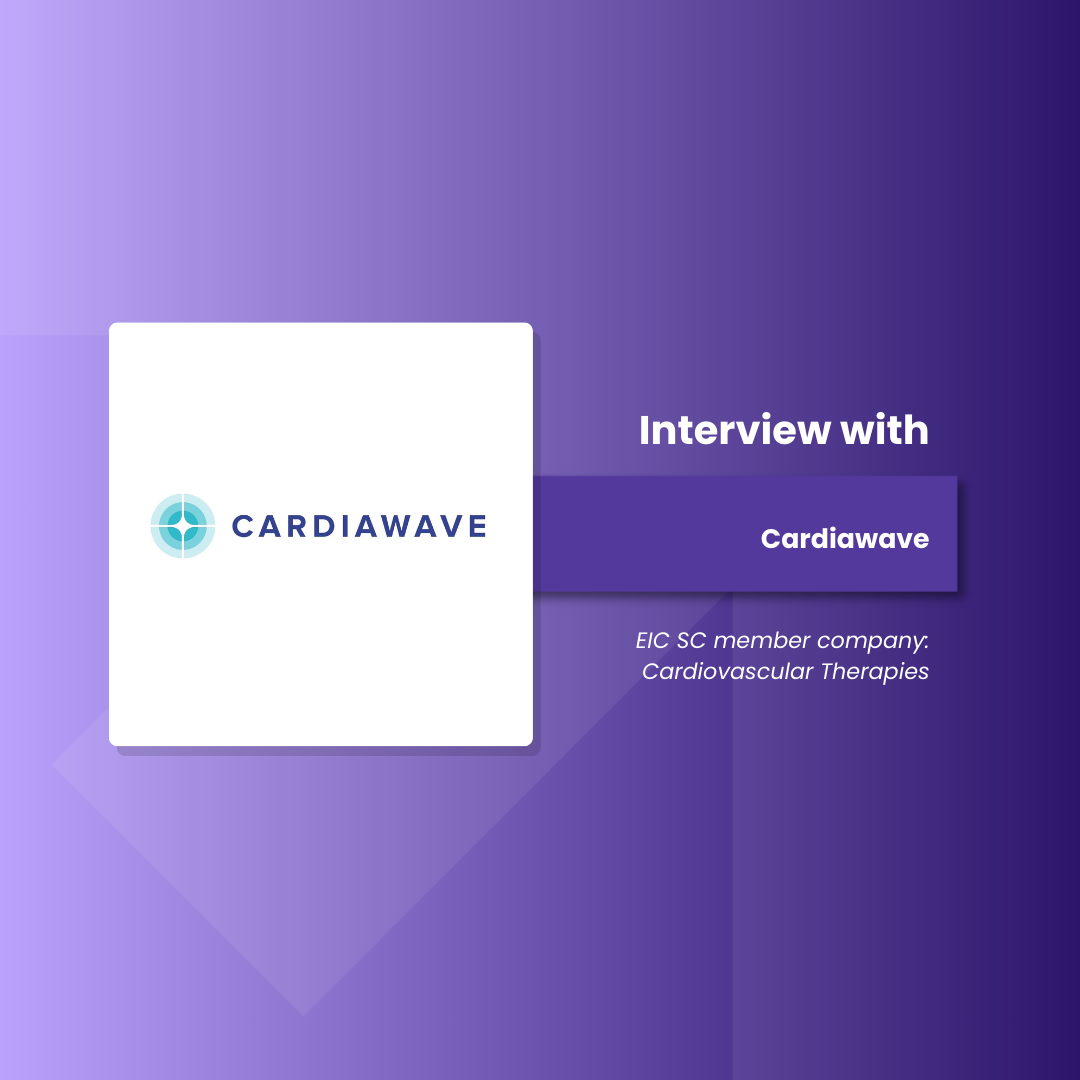20 Jan 2026

Are you ready to boost your company’s publicity and share your story with the world?
Communicating with the media and pitching stories doesn’t have to be daunting. Today, we’ll take a look at what the media wants, help you identify your company’s stories, and craft the perfect pitch to get the attention your business deserves.
But first things first – let’s get on the same page about what PR is and what it is not.
Public relations (PR):
Strategic communication to attract attention and shape public opinion about your company via earned publicity.
As the definition suggests, PR is about boosting your company’s visibility and establishing a certain brand image, using publicity that is not bought. It means that paid articles would not be considered PR – that would be advertising.
What makes a good story for the media
The truth many founders don't want to hear is this – the media doesn't really care about your company. Their goal is to deliver stories that their audiences would like to read.
So, what do people want to read? They want stories that are:
- Timely – connected to something that is happening right now, like trends or topics of general interest.
- Relevant – relevant to the media outlet's audience. For example, if you're pitching to US media, the story must be relevant to people living in the US.
- Insightful – the story offers either some new information or a different take on an already much-discussed topic.
- Evokes emotion – whether it's excitement, sympathy, or even anger, stories that make people feel something are more likely to get clicks. There's a balance between a great emotional story and clickbait, but remember, media outlets need engagement to survive. If your story drives interest, you’ll be seen as a useful source.
In other words, it’s not enough that your company exists and does groundbreaking things – it has to fit into a bigger story that people can relate to.
How to find good stories within your company
There can be several approaches, but here are a few ways to identify media-worthy stories within your business.
- Big company news. Think – significant company achievements, like a funding round or a new partnership with a big industry player. Or maybe you've hired someone who's considered a celebrity in your industry? This kind of news is something the media is always open to hearing about, so do let them know.
- Data-driven insights. Does your tech product generate any data? In that case, you're probably sitting on a goldmine of insights. Can you pull out this data to identify any interesting industry trends? Media love data-driven stories, and most tech companies are able to come up with such insights.
- Strong opinions. Maybe there's a popular viewpoint or assumption in your industry you completely disagree with? Do you have an opinion on policies and regulations, and how that will affect your industry? If you can back up your claims, the media might be interested in hearing your thoughts.
- Personal experiences. Your experience is one of your most valuable assets, and it can be turned into a great story. Have you had a great success? Break it down step-by-step to help others achieve the same. Experienced failure? Share lessons learned that could help others avoid the same mistakes. Made a bold or controversial business decision? Share your way to this decision and how it has impacted your business. Stories like these are very valuable and resonate well with the readers.
Pro tip:
Every single one of these stories can be an article, a podcast episode, a conference talk, and much more. Repurpose your stories in different media formats to make the most of them!
How to write a compelling pitch (with an example!)
Once you’ve found your story and identified the right media outlet to approach, it’s time to write your pitch.
A successful pitch starts with figuring out who you should approach.
- Will you be writing the story yourself, for example, an opinion piece? Then, you have to approach editors, as they’re the ones who decide whether to publish a story or not.
- Are you sharing news or looking to be interviewed? Then, you need to pitch your story to journalists or reporters.
Now, the next step is to sit down and write the email. Here are the must-haves and best practices of a good pitch.
- Subject line – clearly state what’s in the email. Is it a pitch? A news announcement? An opinion piece? Put it in the begining of your subject line.
- Be short and concise. Briefly explain your idea and why it's relevant to the outlet's audience. Don't go into much detail – journalists receive hundreds of emails every day; they don't have the time to read long, ambiguous messages.
- Make your email easy to skim-read so that the journalist or editor can quickly grasp the key idea of your story and decide if it's a fit for them. Use bold to highlight the key ideas and bullet lists to break up large text into quickly digestible parts.
- Finish your email with a call to action. Let them know what they should do next – reply to you? Write a story? Set up a call for an interview? Don't leave them guessing.
If you’re pitching an opinion piece, it’s also crucial to:
- Explain why you should be the one writing the story. What makes you an expert on the particular topic? Why should their readers listen to you?
- Add proof to back up your claims. You can say and think many things, but if you have no reliable proof to back that up, it has little value.
- (Optional, but recommended) Suggest a title for your story that fits the style of the particular publication. If their headlines are short and punchy, suggest a title idea that's short and punchy. It just makes it easier for the editor to picture how your story would fit in.
Here’s a pitch of an opinion piece, where these things are taken into consideration.

Once your email is sent, give the journalist or editor some time to review it. After a few days, send a follow-up. You can follow up more than once, but if you don’t hear back after three emails, it’s a sign that they’re probably not interested – or at least, not right now.
Note! Never pitch the same opinion piece to multiple outlets at once. Opinion pieces are meant to be exclusive to one publication.
Final words
If your pitch isn’t accepted, don’t worry. Revise it and try another outlet. It’s all part of the process, and you’ll get better with practice.
There are ways to improve your success rate. The most foolproof? Connect with journalists and editors in real life, whenever you have a chance. They get hundreds of emails a day, and when they scan their inbox, they’re more likely to open emails from either big-name companies or people they know. Be that person they know!
Take advantage of events you attend – reach out to them, grab a coffee, have a casual conversation, and introduce yourself. Don’t pitch them right away or expect a story after such an interaction, but you never know. The key is building long-lasting relationships that may result in one or several stories sometime in the future.
Good luck!
About the EIC Scaling Club

The EIC Scaling Club is a curated community where 120+ European deep tech scale-ups with the potential to build world-class businesses and solve major global challenges come together with investors, corporate innovators and other industry stakeholders to spur growth.
The top 120+ European deep tech companies will be carefully selected from a pool of high-growth scale-ups that have benefitted from EIC financial schemes, other European and national innovation programmes, and beyond.
The EIC Scaling Club is an EIC-funded initiative run in partnership by Tech Tour, Bpifrance (EuroQuity), Hello Tomorrow, Tech.eu (Webrazzi), EurA and IESE Business School.
Subscribe to our newsletter here to stay up-to-date!
Related Articles
Recent Articles

Our new Policy Report reveals a mismatch between the EU’s long-term regulatory vision and scaleups' immediate capital needs
23 Jan 2026

AI in health tech: EIC Scaling Club companies advancing diagnosis, care and treatment
13 Jan 2026
.png)
cylib secures €63.4 million to scale LFP battery recycling in Europe
7 Jan 2026


